The main god in Greek mythology. Gods of ancient Greece
It arouses genuine interest, intrigues and excites. It combines the fictional and modern world. Quite a few books have been written about him and many films have been made. The Pantheon of Greek gods is a real treasure trove for studying the history, customs and life of Ancient Greece. What function did the celestials perform on the sacred Mount Olympus? What unimaginable power and authority were they endowed with? This and much more will be discussed in our new divine article!
A pantheon, or simply a group of gods belonging to the same religion, consisted of a large number of celestial beings, each of whom performed an assigned role and carried out its own function. In their appearance and behavior, the gods and goddesses were similar to ordinary people. They experienced the same emotions and feelings, fell in love and quarreled, were angry and had mercy, deceived and spread gossip. But their main difference was immortality! Over time, the history of relations between the gods became increasingly overgrown with myths. And this only increased interest and admiration for the ancient religion...
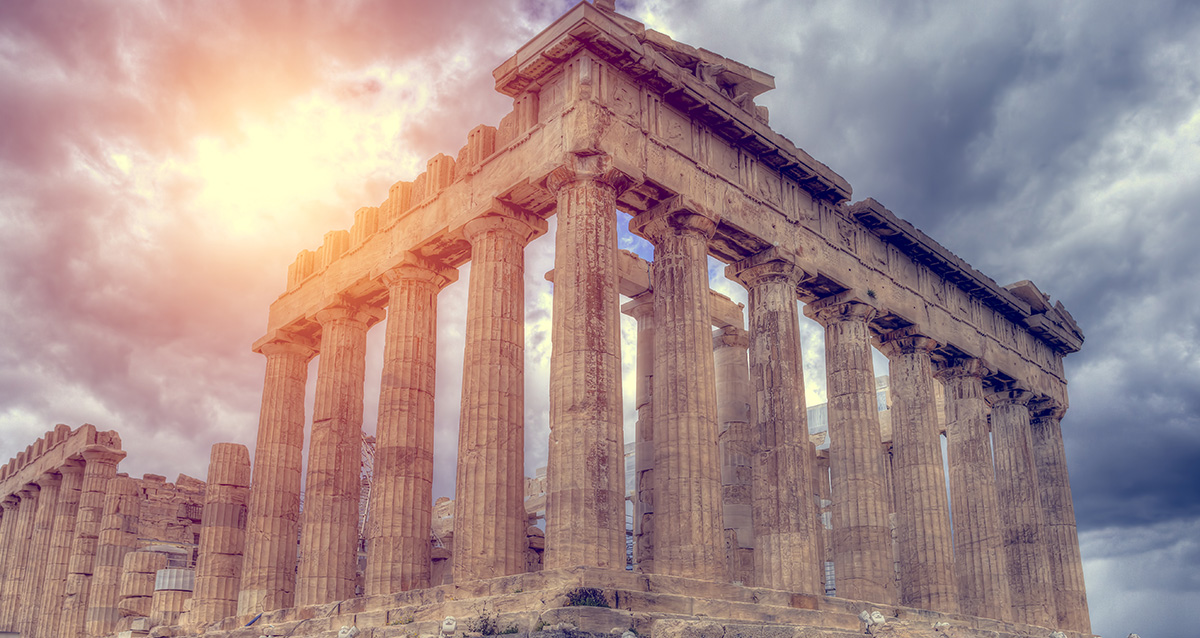
Representatives of the younger generation of celestials in Ancient Hellas were considered the main gods. Once upon a time, they took away the right to rule the world from the older generation (titans), who personified the natural elements and universal forces. Having defeated the Titans, the younger gods, under the leadership of Zeus, settled on Mount Olympus. We will tell you about the 12 main Olympian gods and goddesses, their assistants and companions, who were worshiped by the Greeks!
King of the gods and main deity. Representative of the endless sky, lord of lightning and thunder. Zeus had unlimited power over both people and gods. The ancient Greeks honored and feared the Thunderer, appeasing him in every possible way with the best donations. Babies learned about Zeus even in the womb, and attributed all misfortunes to the wrath of the greatest and omnipotent.
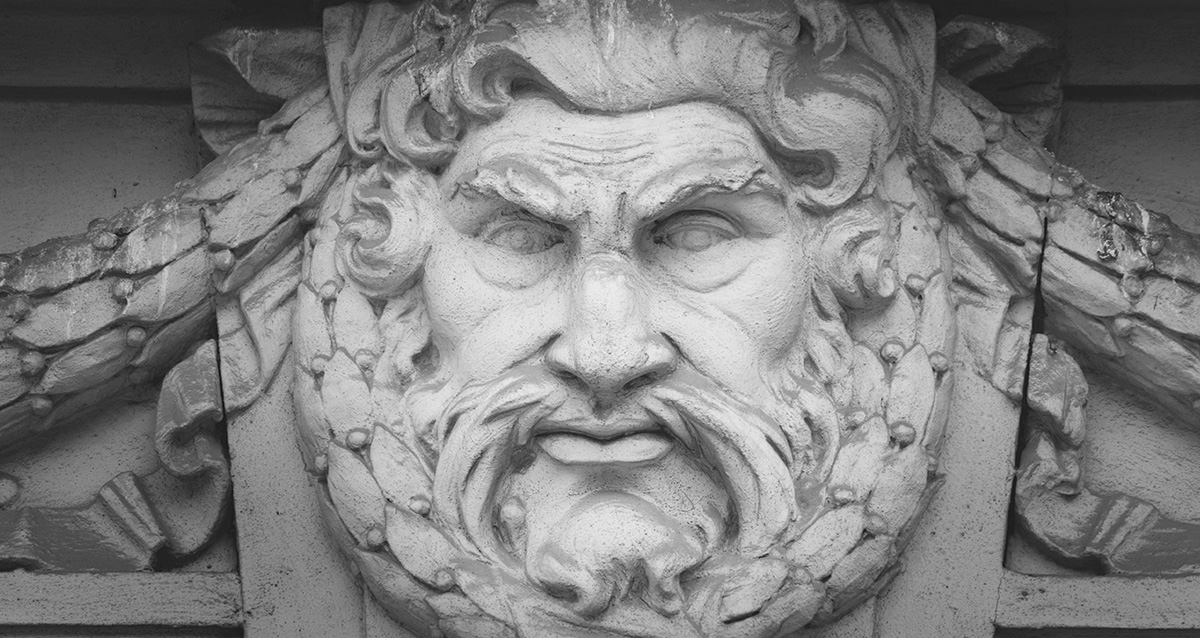
Brother of Zeus, ruler of the sea, rivers, lakes and oceans. He personified courage, stormy temper, hot temper and unearthly strength. As the patron saint of seafarers, he could cause famine, capsize and sink ships, and decide the fate of fishermen in open waters. Poseidon is closely associated with earthquakes and volcanic eruptions.

Brother of Poseidon and Zeus, to whom the entire underworld, the kingdom of the dead, was subordinate. The only one who did not live on Olympus, but was rightfully considered an Olympian god. All the dead went to Hades. Although people were afraid to even utter the name of Hades, in ancient mythology he is represented as a cold, unshakable and indifferent god, whose decision must be carried out unquestioningly. One can only enter into his dark kingdom with demons and shadows of the dead, where the sun's rays do not penetrate. There is no turning back.

Aristocratic and refined, the god of healing, sunlight, spiritual purity and artistic beauty. Having become the patron of creativity, he is considered the head of the 9 muses, as well as the father of the god of doctors, Asclepius.
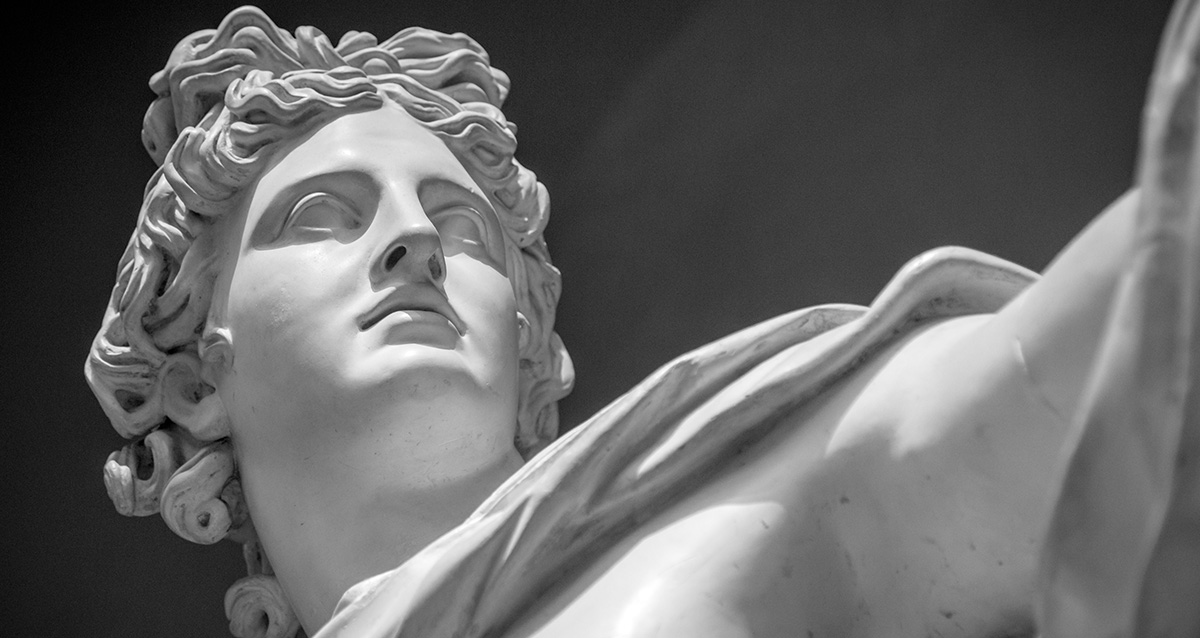
The most ancient god of roads and travel, patron of trade and merchants. This celestial being with wings on his heels was associated with a subtle mind, resourcefulness, cunning and excellent knowledge of foreign languages.

The insidious god of war and fierce battles. The mighty warrior preferred bloody reprisals and waged war for the sake of war itself.

Patron of blacksmithing, pottery and other crafts associated with fire. Even in ancient times, Hephaestus was associated with volcanic activity, roar and flame.
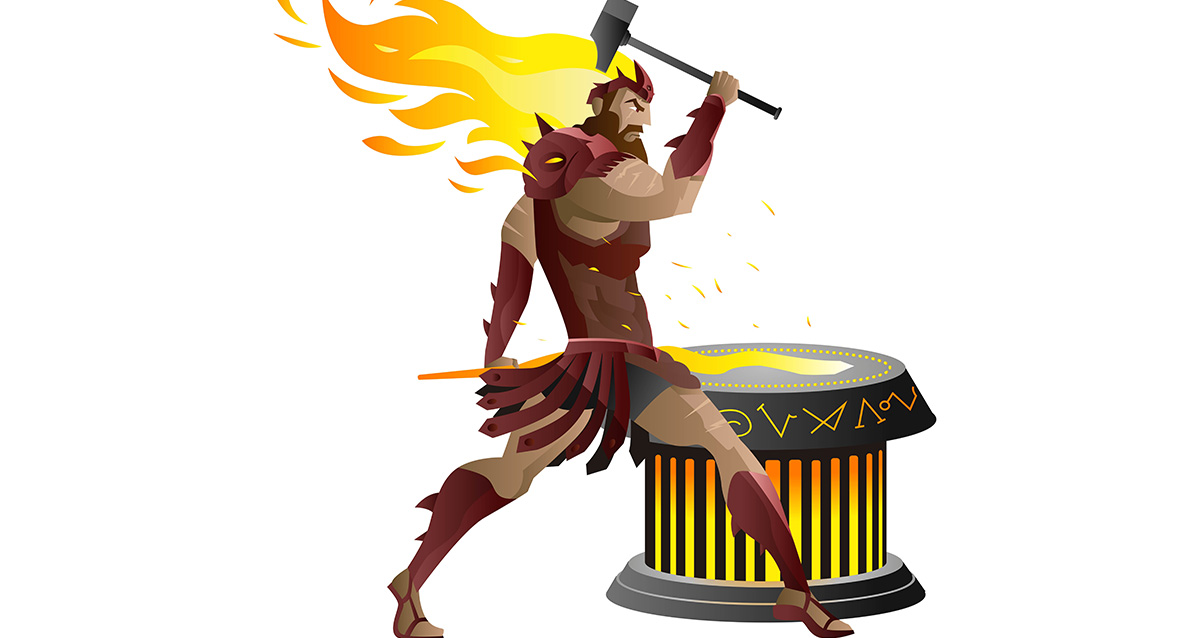
Wife of Zeus, patroness of marriage and conjugal love. The goddess was distinguished by jealousy, anger, cruelty and excessive severity. In a state of rage, she could bring terrible troubles to people.

The daughter of Zeus, the beautiful goddess of love, who easily fell in love with herself and fell in love herself. In her hands was concentrated the great power of love, pure and sincere, which she bestowed on the gods and people.

Goddess of just war, wisdom, patroness of spiritual pursuits, art, agriculture and crafts. Pallas Athena was born from the head of Zeus in full armor. Thanks to her, public life flows and cities are built. For her knowledge and intelligence, she was the most respected and authoritative celestial being among the pantheon of Greek gods.

Patroness of agriculture and goddess of fertility. She is the guardian of life, who taught man peasant labor. She fills the barns and replenishes supplies. Demeter is the embodiment of the primitive energy of creativity, the great mother who gives birth to all living things.
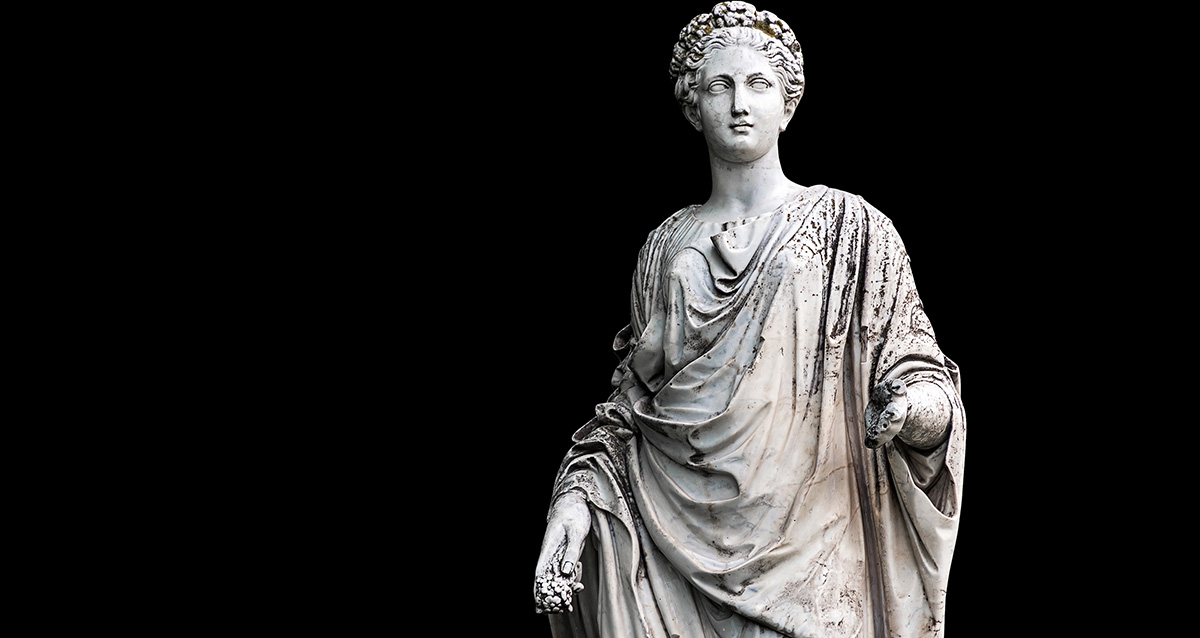
Artemis
Goddess of forests and hunting, sister of Apollo. Patroness of vegetation and fertility. The virginity of the goddess is closely connected with the idea of birth and sexual relations.
In addition to the 12 main Olympian gods, among the Greek celestials there were many equally significant and authoritative names.
God of winemaking and all natural forces that make a person happy.

Morpheus. Everyone was in his arms. Greek god of dreams, son of Hypnos - god of sleep. Morpheus could take any form, accurately copy his voice, and appear to people in their dreams.
Son of Aphrodite and part-time god of love. A cute boy with a quiver and a bow accurately throws arrows at people, which ignite unbreakable love in the hearts of gods and people. In Rome, Cupid corresponded to it.

Persephone. The daughter of Demeter, kidnapped by Hades, who dragged her to his underworld and made her his wife. She spends part of the year upstairs with her mother, the rest of the time she lives underground. Persephone personified the grain that is sown in the ground and comes to life when it comes out into the light.
Patron of the hearth, family and sacrificial fire.

Pan. Greek god of forests, patron of shepherds and flocks. Represented with goat legs, horns and a beard with a pipe in his hands.
Goddess of victory and constant companion of Zeus. The divine symbol of success and a happy outcome is always depicted in a pose of rapid movement or with wings. Nika takes part in all musical competitions, military enterprises and religious celebrations.

And these are not all the Greek names of the gods:
- Asclepius is the Greek god of healing.
- Proteus is the son of Poseidon, a sea deity. He had the gift of predicting the future and changing his appearance.
- Triton, the son of Poseidon, brought news from the depths of the sea by blowing a conch shell. Depicted as a mixture of horse, fish and man.
- Eirene - the goddess of peace, stands at the Olympian throne of Zeus.
- Dike is the patroness of truth, a goddess who does not tolerate deception.
- Tyukhe is the goddess of luck and successful chance.
- Plutos is the ancient Greek god of wealth.
- Enyo is the goddess of furious war, causing fury in the fighters, bringing confusion to the battle.
- Phobos and Deimos are the sons and companions of Ares, the god of war.
Hades - God is the ruler of the kingdom of the dead.
Antey- hero of myths, giant, son of Poseidon and the Earth of Gaia. The earth gave its son strength, thanks to which no one could control him.
Apollo- god of sunlight. The Greeks depicted him as a beautiful young man.
Ares- god of treacherous war, son of Zeus and Hera
Asclepius- god of healing arts, son of Apollo and the nymph Coronis
Boreas- god of the north wind, son of the Titanides Astraeus (starry sky) and Eos (morning dawn), brother of Zephyr and Note. He was depicted as a winged, long-haired, bearded, powerful deity.
Bacchus- one of the names of Dionysus.
Helios (Helium ) - god of the Sun, brother of Selene (goddess of the Moon) and Eos (morning dawn). In late antiquity he was identified with Apollo, the god of sunlight.
Hermes- the son of Zeus and Maya, one of the most polysemantic Greek gods. Patron of wanderers, crafts, trade, thieves. Possessing the gift of eloquence.
Hephaestus- son of Zeus and Hera, god of fire and blacksmithing. He was considered the patron of artisans.
Hypnos- deity of sleep, son of Nikta (Night). He was depicted as a winged youth.
Dionysus (Bacchus) - the god of viticulture and winemaking, the object of a number of cults and mysteries. He was depicted either as an obese elderly man or as a young man with a wreath of grape leaves on his head.
Zagreus- god of fertility, son of Zeus and Persephone.
Zeus- supreme god, king of gods and people.
Marshmallow- god of the west wind.
Iacchus- god of fertility.
Kronos - titan , youngest son of Gaia and Uranus, father of Zeus. He ruled the world of gods and people and was overthrown from the throne by Zeus...
Mom- son of the goddess of Night, god of slander.
Morpheus- one of the sons of Hypnos, god of dreams.
Nereus- son of Gaia and Pontus, meek sea god.
Note- the god of the south wind, depicted with a beard and wings.
Ocean is titanium , son of Gaia and Uranus, brother and husband of Tethys and father of all the rivers of the world.
Olympians- the supreme gods of the younger generation of Greek gods, led by Zeus, who lived on the top of Mount Olympus.
Pan- forest god, son of Hermes and Dryope, goat-footed man with horns. He was considered the patron saint of shepherds and small livestock.
Pluto- the god of the underworld, often identified with Hades, but unlike from him, who owned not the souls of the dead, but the riches of the underworld.
Plutos- son of Demeter, god who gives wealth to people.
Pont- one of the senior Greek deities, the offspring of Gaia, the god of the sea, the father of many titans and gods.
Poseidon- one of the Olympian gods, brother of Zeus and Hades, who rules over the sea elements. Poseidon was also subject to the bowels of the earth,
he commanded storms and earthquakes.
Proteus- sea deity, son of Poseidon, patron of seals. He had the gift of reincarnation and prophecy.
Satires- goat-footed creatures, demons of fertility.
Thanatos- personification of death, twin brother of Hypnos.
Titans- generation of Greek gods, ancestors of the Olympians.
Typhon- a hundred-headed dragon born of Gaia or Hera. During the battle of the Olympians and the Titans, he was defeated by Zeus and imprisoned under the volcano Etna in Sicily.
Triton- son of Poseidon, one of the sea deities, a man with a fish tail instead of legs, holding a trident and a twisted shell - a horn.
Chaos- an endless empty space from which at the beginning of time the most ancient gods of the Greek religion - Nyx and Erebus - emerged.
Chthonic gods - deities of the underworld and fertility, relatives of the Olympians. These included Hades, Hecate, Hermes, Gaia, Demeter, Dionysus and Persephone.
Cyclops - giants with one eye in the middle of the forehead, children of Uranus and Gaia.
Eurus (Eur)- god of the southeast wind.
Aeolus- lord of the winds.
Erebus- personification of the darkness of the underworld, son of Chaos and brother of Night.
Eros (Eros)- god of love, son of Aphrodite and Ares. In the most ancient myths - a self-emerging force that contributed to the ordering of the world. He was depicted as a winged youth (in the Hellenistic era - a boy) with arrows, accompanying his mother.
Ether- deity of the sky
Goddesses of ancient Greece
Artemis- goddess of hunting and nature.
Atropos- one of the three moiras, cutting the thread of fate and ending human life.
Athena (Pallada, Parthenos) - daughter of Zeus, born from his head in full military armor. One of the most revered Greek goddesses, the goddess of just war and wisdom, the patroness of knowledge.
Aphrodite (Kytharea, Urania) - goddess of love and beauty. She was born from the marriage of Zeus and the goddess Dione (according to another legend, she came out of the sea foam)
Hebe- daughter of Zeus and Hera, goddess of youth. Sister of Ares and Ilithyia. She served the Olympian gods at feasts.
Hecate- goddess of darkness, night visions and sorcery, patroness of sorcerers.
Gemera- goddess of daylight, personification of the day, born of Nikta and Erebus. Often identified with Eos.
Hera- the supreme Olympian goddess, sister and third wife of Zeus, daughter of Rhea and Kronos, sister of Hades, Hestia, Demeter and Poseidon. Hera was considered the patroness of marriage.
Hestia- goddess of the hearth and fire.
Gaia- mother earth, foremother of all gods and people.
Demitra- goddess of fertility and agriculture.
Dryads- lower deities, nymphs who lived in trees.
Diana-goddess of the hunt
Ilithia- patron goddess of women in labor.
Iris- winged goddess, assistant of Hera, messenger of the gods.
Calliope- muse of epic poetry and science.
Kera- demonic creatures, children of the goddess Nikta, bringing troubles and death to people.
Clio- one of the nine muses, the muse of history.
Clotho ("spinner") - one of the moiras that spin the thread of human life.
Lachesis- one of the three Moira sisters, who determine the fate of every person even before birth.
Summer- Titanide, mother of Apollo and Artemis.
Mayan- a mountain nymph, the eldest of the seven Pleiades - the daughters of Atlas, the beloved of Zeus, from whom Hermes was born to her.
Melpomene- muse of tragedy.
Metis- goddess of wisdom, the first of the three wives of Zeus, who conceived Athena from him.
Mnemosyne- mother of nine muses, goddess of memory.
Moira- goddess of fate, daughter of Zeus and Themis.
Muses- patron goddess of the arts and sciences.
Naiads- nymphs-guardians of waters.
Nemesis- daughter of Nikta, a goddess who personified fate and retribution, punishing people in accordance with their sins.
Nereids- fifty daughters of Nereus and the oceanids Doris, sea deities.
Nika- personification of victory. She was often depicted wearing a wreath, a common symbol of triumph in Greece.
Nymphs- lower deities in the hierarchy of Greek gods. They personified the forces of nature.
Nikta- one of the first Greek deities, the goddess is the personification of the primordial Night
Orestiades- mountain nymphs.
Ory- goddess of the seasons, peace and order, daughter of Zeus and Themis.
Peyto- goddess of persuasion, companion of Aphrodite, often identified with her patroness.
Persephone- daughter of Demeter and Zeus, goddess of fertility. The wife of Hades and the queen of the underworld, who knew the secrets of life and death.
Polyhymnia- the muse of serious hymn poetry.
Tethys- daughter of Gaia and Uranus, wife of Ocean and mother of the Nereids and Oceanids.
Rhea- mother of the Olympian gods.
Sirens- female demons, half-woman, half-bird, capable of changing the weather at sea.
Waist- the muse of comedy.
Terpsichore- muse of dance art.
Tisiphone- one of the Erinyes.
Quiet- goddess of fate and chance among the Greeks, companion of Persephone. She was depicted as a winged woman standing on a wheel and holding a cornucopia and a ship's rudder in her hands.
Urania- one of the nine muses, patroness of astronomy.
Themis- Titanide, goddess of justice and law, second wife of Zeus, mother of mountains and moira.
Charites- goddess of female beauty, the embodiment of a kind, joyful and eternally young beginning of life.
Eumenides- another hypostasis of the Erinyes, revered as goddesses of benevolence, who prevented misfortunes.
Eris- daughter of Nyx, sister of Ares, goddess of discord.
Erinyes- goddesses of vengeance, creatures of the underworld, who punished injustice and crimes.
Erato- Muse of lyrical and erotic poetry.
Eos- goddess of the dawn, sister of Helios and Selene. The Greeks called it “rose-fingered.”
Euterpe- muse of lyrical chant. Depicted with a double flute in her hand.
Oleg and Valentina Svetovid are mystics, specialists in esotericism and occultism, authors of 14 books.
Here you can get advice on your problem, find useful information and buy our books.
On our website you will receive high-quality information and professional help!
Mythical names
Mythical male and female names and their meanings
Mythical names- these are names taken from Roman, Greek, Scandinavian, Slavic, Egyptian and other mythologies.
On our website we offer a huge selection of names...
Book "The Energy of the Name"
Our new book "The Energy of Surnames"
Oleg and Valentina Svetovid
Our email address: [email protected]
At the time of writing and publishing each of our articles, there is nothing like this freely available on the Internet. Any of our information products is our intellectual property and is protected by the Law of the Russian Federation.
Any copying of our materials and publication of them on the Internet or in other media without indicating our name is a violation of copyright and is punishable by the Law of the Russian Federation.
When reprinting any materials from the site, a link to the authors and site - Oleg and Valentina Svetovid – required.
Mythical names. Mythical male and female names and their meanings
A brief excursion into history
Greece was not always called that way. Historians, in particular Herodotus, highlight even more ancient times in those territories that were later called Hellas - the so-called Pelasgian.
This term comes from the name of the Pelasgian tribe (“storks”) who came to the mainland from the Greek island of Lemnos. According to the historiographer’s conclusions, Hellas at that time was called Pelasgia. There were primitive beliefs in something unearthly that would save people - cults of fictitious creatures.
The Pelasgians united with a small Greek tribe and adopted their language, although they never grew from barbarians into a nationality.

Where did the Greek gods and myths about them come from?
Herodotus assumed that the Greeks adopted the names of many gods and their cults from the Pelasgians. At least, the veneration of lower deities and Kabirs - great gods who, with their unearthly power, saved the earth from troubles and dangers. The Sanctuary of Zeus in Dodona (a city near present-day Ioannina) was built much earlier than the still famous Delphic one. From those times came the famous “troika” of Kabiri - Demeter (Axieros), Persephone (Axiokersa, in Italy - Ceres) and her husband Hades (Axiokersos).
In the Pontifical Museum in the Vatican there is a marble statue of these three cabirs in the form of a triangular column by the sculptor Scopas, who lived and worked in the 4th century BC. e. At the bottom of the pillar are carved miniature images of Mithras-Helios, Aphrodite-Urania and Eros-Dionysus as symbols of the unbroken chain of mythology.
This is where the names of Hermes come from (Camilla, Latin for “servant”). In the History of Athos, Hades (Hell) is the god of the other world, and his wife Persephone gave life on earth. Artemis was called Kaleagra.
The new gods of Ancient Hellas descended from the “storks” and took away their right to reign. But they already had a human appearance, although with some exceptions remaining from zoomorphism.

The goddess, the patroness of the city named after her, was born from the brain of Zeus, the main god of the third stage. Consequently, before him, the heavens and the earth's firmament were ruled by others.
The first ruler of the earth was the god Poseidon. During the capture of Troy he was the main deity.
According to mythology, he ruled both the seas and oceans. Since Greece has a lot of island territories, the influence of Poseidon and his cult also applied to them. Poseidon was the brother of many new gods and goddesses, including such famous ones as Zeus, Hades and others.
Next, Poseidon began to look at the continental territory of Hellas, for example, Attica, a huge part south of the central mountain range of the Balkan Peninsula and to the Peloponnese. He had a reason for this: in the Balkans there was a cult of Poseidon in the form of a fertility demon. Athena wanted to deprive him of such influence.

The goddess won the dispute for the land. The gist of it is this. One day a new alignment of the influence of the gods occurred. At the same time, Poseidon lost his right to land, and the seas were left to him. The sky was seized by the god of thunder and lightning thrower. Poseidon began to dispute the rights to certain territories. He struck the ground during a dispute on Olympus, and water flowed from there, and
Athena gave Attica an olive tree. The gods decided the dispute in favor of the goddess, believing that the trees would be more useful. The city was named after her.
Aphrodite
When the name of Aphrodite is uttered in modern times, her beauty is mainly revered. In ancient times she was the goddess of love. The cult of the goddess first arose in the colonies of Greece, its current islands, founded by the Phoenicians. Worship similar to Aphrodite was then reserved for two other goddesses - Asherah and Astarte. In the Greek pantheon of gods
Aphrodite was more suited to the mythical role of Asherah, lover of gardens, flowers, inhabitant of groves, goddess of spring awakening and voluptuousness in pleasure with Adonis.

Reincarnating as Astarte, the “goddess of heights,” Aphrodite became unapproachable, always with a spear in her hand. In this guise, she protected family loyalty and doomed her priestesses to eternal virginity.
Unfortunately, in later times the cult of Aphrodite split into two, if one can express the differences between the various Aphrodites that way.
Myths of Ancient Greece about the gods of Olympus
They are the most common and most cultivated in both Greece and Italy. This supreme pantheon of Mount Olympus included six gods - the children of Kronos and Hera (the Thunderer himself, Poseidon and others) and nine descendants of the god Zeus. Among them the most famous are Apollo, Athena, Aphrodite and others like them.

In the modern interpretation of the word “Olympian,” in addition to athletes participating in the Olympics, it means “calmness, self-confidence, external greatness.” And earlier there was also Olympus of the gods. But at that time, these epithets applied only to the head of the pantheon - Zeus, because he fully corresponded to them. We talked about Athena and Poseidon in detail above. Other gods of the pantheon were also mentioned - Hades, Helios, Hermes, Dionysus, Artemis, Persephone.
The main gods in Ancient Hellas were recognized as those who belonged to the younger generation of celestials. Once upon a time, it took away power over the world from the older generation, who personified the main universal forces and elements (see about this in the article The Origin of the Gods of Ancient Greece). The gods of the older generation are usually called titans. Having defeated the Titans, the younger gods, led by Zeus, settled on Mount Olympus. The ancient Greeks honored the 12 Olympian gods. Their list usually included Zeus, Hera, Athena, Hephaestus, Apollo, Artemis, Poseidon, Ares, Aphrodite, Demeter, Hermes, Hestia. Hades is also close to the Olympian gods, but he does not live on Olympus, but in his underground kingdom.
Gods of Ancient Greece. Video

God Poseidon (Neptune). Antique statue of the 2nd century. according to R.H.

Olympian goddess Artemis. Statue in the Louvre

Statue of Virgin Athena in the Parthenon. Ancient Greek sculptor Phidias


Venus (Aphrodite) de Milo. Statue approx. 130-100 BC.

Eros Earthly and Heavenly. Artist G. Baglione, 1602
Hymen- companion of Aphrodite, god of marriage. After his name, wedding hymns were also called hymens in Ancient Greece.
- daughter of Demeter, kidnapped by the god Hades. The inconsolable mother, after a long search, found Persephone in the underworld. Hades, who made her his wife, agreed that she should spend part of the year on earth with her mother, and the other with him in the bowels of the earth. Persephone was the personification of grain, which, being “dead” sown into the ground, then “comes to life” and comes out of it into the light.

The abduction of Persephone. Antique jug, ca. 330-320 BC.
Amphitrite- wife of Poseidon, one of the Nereids
Proteus- one of the sea deities of the Greeks. Son of Poseidon, who had the gift of predicting the future and changing his appearance
Triton- the son of Poseidon and Amphitrite, a messenger of the deep sea, blowing a shell. In appearance it is a mixture of a man, a horse and a fish. Close to the eastern god Dagon.
Eirene- goddess of peace, standing at the throne of Zeus on Olympus. In Ancient Rome - the goddess Pax.
Nika- goddess of victory. Constant companion of Zeus. In Roman mythology - Victoria
Dike- in Ancient Greece - the personification of divine truth, a goddess hostile to deception
Tyukhe- goddess of luck and good fortune. For the Romans - Fortuna
Morpheus- Ancient Greek god of dreams, son of the god of sleep Hypnos
Plutos- god of wealth
Phobos(“Fear”) – son and companion of Ares
Deimos(“Horror”) – son and companion of Ares
Enyo- among the ancient Greeks - the goddess of frantic war, who arouses rage in the fighters and brings confusion into the battle. In Ancient Rome - Bellona
Titans
Titans are the second generation of gods of Ancient Greece, generated by natural elements. The first Titans were six sons and six daughters, descended from the connection of Gaia-Earth with Uranus-Sky. Six sons: Cronus (Time among the Romans - Saturn), Ocean (father of all rivers), Hyperion, Kay, Kriy, Iapetus. Six daughters: Tethys(Water), Theia(Shine), Rhea(Mother Mountain?), Themis (Justice), Mnemosyne(Memory), Phoebe.

Uranus and Gaia. Ancient Roman mosaic 200-250 AD.
In addition to the Titans, Gaia gave birth to Cyclopes and Hecatoncheires from her marriage with Uranus.
Cyclops- three giants with a large, round, fiery eye in the middle of their forehead. In ancient times - personifications of clouds from which lightning flashes
Hecatoncheires- “hundred-handed” giants, against whose terrible strength nothing can resist. Incarnations of terrible earthquakes and floods.
The Cyclopes and Hecatoncheires were so strong that Uranus himself was horrified by their power. He tied them up and threw them deep into the earth, where they are still rampaging, causing volcanic eruptions and earthquakes. The presence of these giants in the belly of the earth began to cause terrible suffering. Gaia persuaded her youngest son, Cronus, to take revenge on his father, Uranus, by castrating him.
Cron did it with a sickle. From the drops of blood of Uranus that spilled, Gaia conceived and gave birth to three Erinyes - goddesses of vengeance with snakes on their heads instead of hair. The names of the Erinnyes are Tisiphone (killing avenger), Alecto (tireless pursuer) and Megaera (terrible). From that part of the seed and blood of castrated Uranus that fell not on the ground, but in the sea, the goddess of love Aphrodite was born.
Night-Nyukta, in anger at the lawlessness of Krona, gave birth to terrible creatures and deities Tanata (Death), Eridu(Discord) Apata(Deception), goddesses of violent death Ker, Hypnos(Dream-Nightmare), Nemesis(Revenge), Gerasa(Old age), Charona(carrier of the dead to the underworld).
Power over the world has now passed from Uranus to the Titans. They divided the universe among themselves. Cronus became the supreme god instead of his father. The ocean gained power over a huge river, which, according to the ideas of the ancient Greeks, flows around the entire earth. Four other brothers of Cronos reigned in the four cardinal directions: Hyperion - in the East, Crius - in the south, Iapetus - in the West, Kay - in the North.
Four of the six elder titans married their sisters. From them came the younger generation of titans and elemental deities. From the marriage of Ocean with his sister Tethys (Water), all the earth's rivers and water nymphs, the Oceanids, were born. Titan Hyperion - (“high-walking”) took his sister Theia (Shine) as his wife. From them were born Helios (Sun), Selena(Moon) and Eos(Dawn). From Eos were born the stars and the four gods of the winds: Boreas(North wind), Note(South wind), Marshmallow(west wind) and Eurus(Eastern wind). The Titans Kay (Heavenly Axis?) and Phoebe gave birth to Leto (Night Silence, mother of Apollo and Artemis) and Asteria (Starlight). Cronus himself married Rhea (Mother Mountain, the personification of the productive power of mountains and forests). Their children are the Olympic gods Hestia, Demeter, Hera, Hades, Poseidon, Zeus.
The Titan Crius married the daughter of Pontus Eurybia, and the Titan Iapetus married the oceanid Clymene, who gave birth to the Titans Atlas (he holds the sky on his shoulders), the arrogant Menoetius, the cunning Prometheus (“thinking first, foreseeing”) and the feeble-minded Epimetheus (“thinking after").
From these titans came others:
Hesperus- god of the evening and the evening star. His daughters from the night-Nyukta are the nymphs Hesperides, who guard on the western edge of the earth a garden with golden apples, once presented by Gaia-Earth to the goddess Hera at her marriage to Zeus
Ory- goddesses of parts of the day, seasons and periods of human life.
Charites- goddess of grace, fun and joy of life. There are three of them - Aglaya (“Rejoicing”), Euphrosyne (“Joy”) and Thalia (“Abundance”). A number of Greek writers have different names for charites. In Ancient Rome they corresponded to grace






